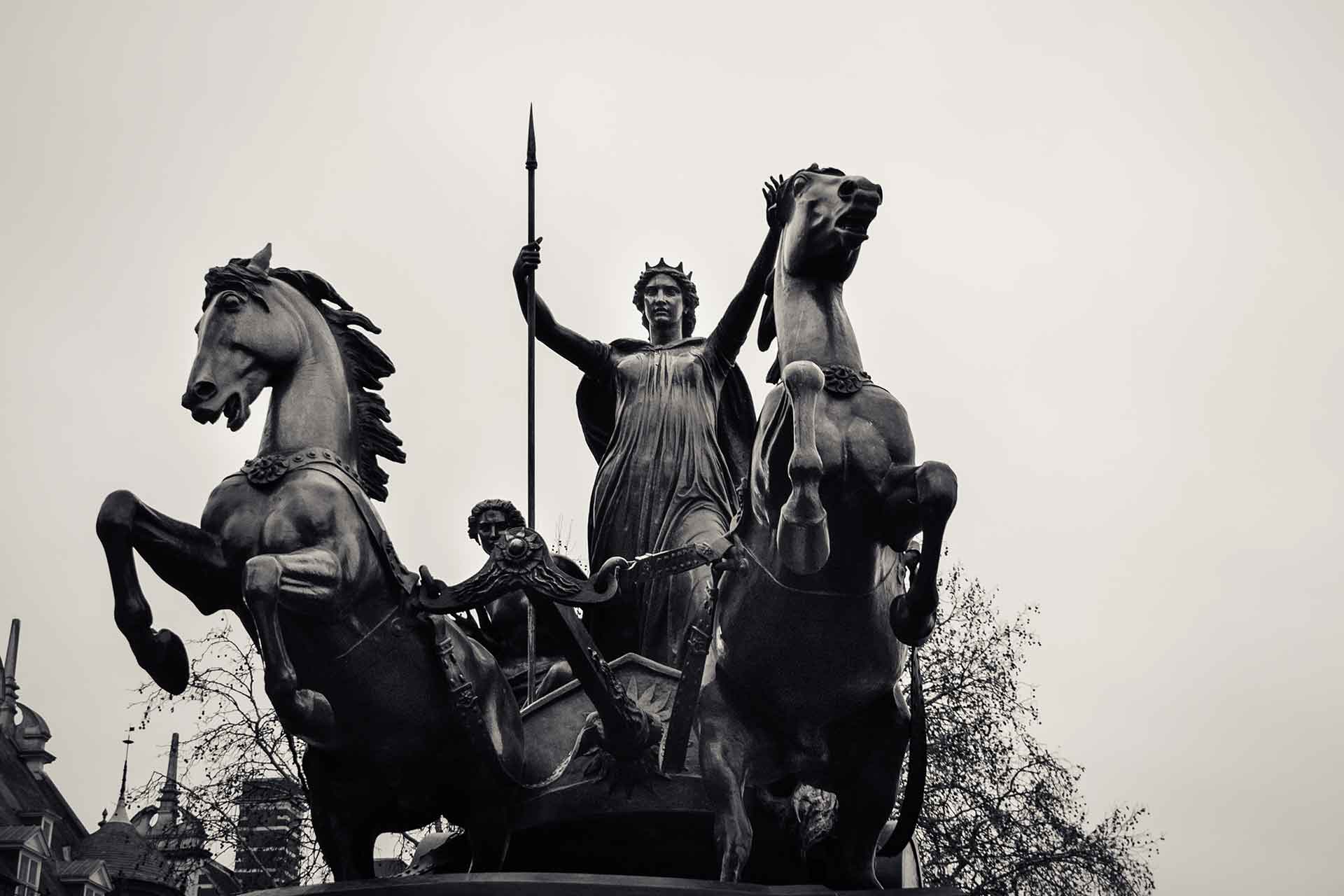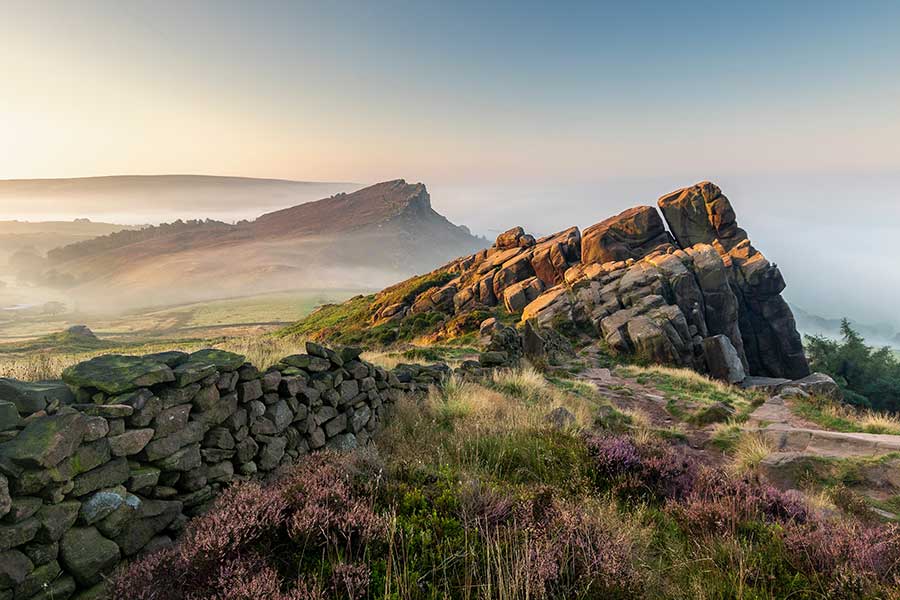THOUGHTS | DREAMS | ACTION

THOUGHTS | DREAMS | ACTION

Boudica, Boudicca, Boadicea – What’s in a name?

If you’re generation X or older, you’ll have been taught – if you were taught anything at all about our ancient past – that Queen Boadicea of the Iceni gained the throne of her tribe when her husband died, and led her armies in a fatally flawed rebellion against the might – and greater good – of Rome. On the whole, according to that view of the world, it was just as well she lost, else Britain would have remained forever a barbarian outpost, full of hide-wearing savages constantly at war with each other who lacked the Roman sense of civilization – not to mention its ability to conquer large areas of land where people didn’t speak Latin and enslave them. This is the kind of propaganda that Imperial powers like to promote and given that the British empire was broadly modeled on the Roman one, it’s a narrative that suited our immediate forebears very well. It’s also, like a lot of the other ‘facts’ they peddled, almost entirely false.
Where was Boudica from?
First, we need to establish the geography. Boudica was said to be Queen of the Iceni. So where did this come from? The Roman writer Tacitus is our primary source and the only one who gives us any detail. He writes of Boudicca of the Iceni, but he was spelling out names he’d heard spoken by his father-in-law, Agricola, who served in the legions at the time of the Boudican revolt and famously went on to crush the uprising by the northern tribes at the battle of Mons Graupius. We have one other source, though, in the coins that were produced by this tribe in the time before the revolt. They called themselves the Eceni – which, I think, gives us a clue as to the pronunciation. So let’s have a look at how we might actually say these names.Pronunciation: how do we say these names?
Robert Graves, in his searing autobiography, ‘Goodbye to all That’, tells of attending three different prep schools, at which he learned three different pronunciations of Latin, and a fourth when he ascended to the living hell of public school. So the honest observatin is that we genuinely don’t know how Romans said the words they wrote, or how they were spoken by the people whose names they actually were. Likely there were fashions, just as there are now, and the words may well have evolved over the four centuries of Roman rule in Britannia. That said, the coins and Tacitust between them suggest that the opening vowel is more of an ‘Ehh’ as in Egg, rather than ‘Ai’ as in eye. There seems a consensus that Roman Cs were hard, in the way of our Ks, so Boudica’s tribe is almost certainly pronounced as Ehh-Kane-i. The last vowel might be an ‘Eye’, but I tend to think it’s more like the opening vowel of ‘itch’. At any rate, when I’m writing a book, I don’t have to worry if you all pronounce it differently, we’re all seeing the same word on the page.Boudica’s name: Boudica, Boudicca or Boadicea?
The names of the individuals are harder to pin down, but one thing we can say for certain is that BOADICEA is a typo – or at least, the mediaeval monkish equivalent. Tacitus – again taking Agricola as his source – wrote BOUDICCA – with two Cs. If you write that out, it’s an easy mistake to turn the ‘U’ into an ‘A’ (particularly if you’re in lower case writing) and the second C into an E. If you’re copying texts in a candle-lit cell, that’s a fairly trivial mistake. As far as pronunciation goes, the current thinking is that it’s Boo-Dik-Ah rather than the more flowery Bow-Diss-Ee-Ah.
The latter was picked up and popularized by the Victorians who saw no conflict in building an empire on Roman lines while at the same time building statues (with knives on the chariot wheels – I need to write a whole other blog about the anachronism of that) to the woman who tried to kick Rome out of Britain. For those of us who are not fond of Romans – or Victorians for that matter – it’s rather lovely to think that she’s probably the only woman in the world who has a statue erected in her honour in the middle of the city she burned to ashes.
That doesn’t take us to the core of things, though. We had to wait until the empire was in dissolution and archaeologists were less slavishly Roman before we could go deeper into the name. And when we did, it turns out that it’s not a name after all, it’s a title.
The meaning of ‘Boudica’: a Title, not a Name.
Because ‘Boudica’, comes from the old proto-Gaelic word BOUDEG, which means ‘Victory’. And so the word properly is ‘Boudega’ – She who Brings Victory. Which first of all gives us an idea of the pronunciation – a hard ‘g’ is very like a hard ‘c’- I’d say that if it’s being chanted by warriors ahead of a battle, it’s pretty much impossible to tell the difference. And then we have to look at the fact that this can’t really be a name. At least, I think it’s highly unlikely that a tribal mother names her infant daughter ‘Boudega’ and she just happens to grow up to destroy the ninth legion (all but) and raze three cities to the ground.
As a final supporting plank in the argument, we have a similar circumstance back up in Scotland with the battle of Mons Graupius that I mentioned earlier. There, a tribal leader called ‘Calgacus’ gives the famous oration in which he says of Rome that it ‘wrought a desolation and called it peace.’ This is Tacitus speaking through his mouth, I have no doubt, but even so, it’s a concept that has echoed down the ages with every overweaning dictator and imperial army (think of Iraq, Afghanistan, the current destruction of the Kurds….). And… Calgacus means ‘Swordsman’ – which I rather think is another title.
So, of the half dozen tribal leaders whom Tacitus names, at least two are names that fit better as titles. Another is Cogidubnos, which means ‘Blackhead’ – which sounds to me like another title, but one less impossible to imagine as a lifelong name.
Thus we have Boudega of the Eceni rather than Boudicca of the Iceni, a woman who led an almost-successful revolt against an occupying army of desperate savagery. Whether she was a queen or not is open to question: she was a warleader, of that I have no doubt – you don’t name someone ‘Bringer of Victory’ if they are simply a figurehead stuck at the front of your army. Particularly when the concept of ‘army’ is foreign to you and you have, instead, a hundred thousand warriors, who have waited three decades for the chance to free themselves from an occupation that was doing its best to annihilate their culture.
We don’t call her Boudega, although we probably should. Archeologists and historians have settled on Boudica, which is close enough, and marginally less confusing for a world that’s still getting used to the idea that Boadicea isn’t right. And what matters, is that it was a good title. She so nearly brought victory. so nearly succeeded. The last battle was a mistake in what, until then, had been an exemplary tactical success. If she’d won, the world would be a different place. I invite you to imagine a world in which Rome does not impose marriage, money, and its ghastly, made-up religion on the rest of the planet. And in which Britain remains a nation of druidry and warriors, that would not fall prey nearly so easily to the later Norse and Saxon invaders. People are people and the demagogues would still rise, but a world without three conflicting branches of the same religion would be an interesting place to grow up.



